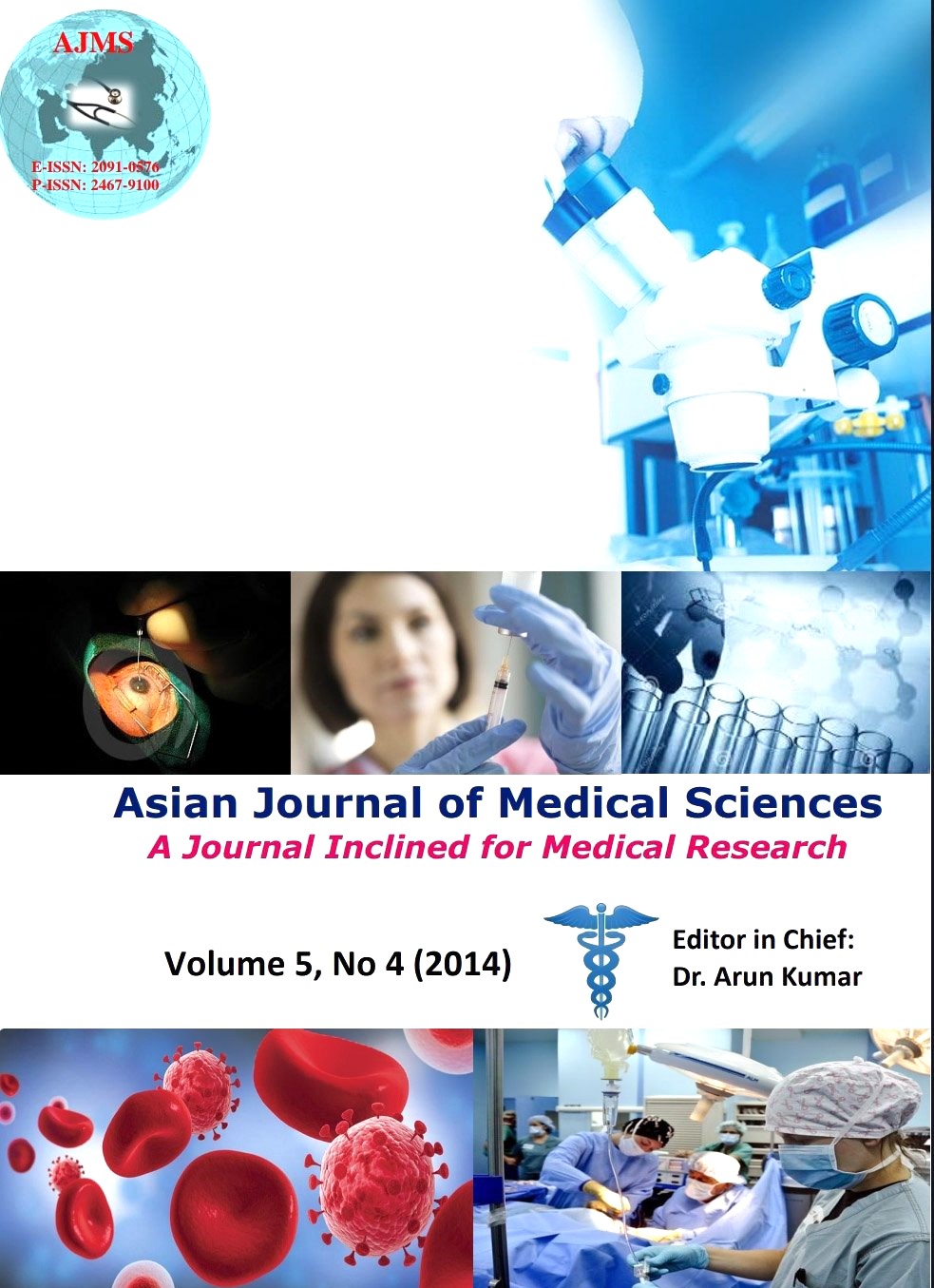Acute respiratory tract infection among preschool children in Western Maharashtra, India
Keywords:
Anganwadi, ARI, Incidence, Maternal Literacy, Pre-primary school childrenAbstract
Background: Malnutrition and infectious diseases both occur in the same unfortunate children and together they play a major role in causing the high morbidity and mortality in them.In developing countries, mortality from ARTI is 30?70 times higher than in developed countries and it has been estimated that up to 1/3rd of all deaths in children less than 5 years are attributed to ARTI.
Aims & Objectives: This study aimed to find the attack rate of Acute Respiratory Tract infection and the socio?demographic variables of pre?school children suffering from Acute Respiratory Tract infections.
Method: A Comparative Longitudinal study was carried out among preschool children (3?5 years) who were selected from Private pre?primary school of urban area (155)& Anganwadis (157) of urban slum area of karad town and followed for the period of one year. Mother/guardian/teacher was interviewed by using pre?tested proforma during this period.
Results & Interpretation: out of all 97.4% of private pre?primary school children had 1.8 episodes/child/year of ARTI compared to Anganwadi children where all of them had 2.5 episodes/child/year of ARTI. Conclusion: Maximum number of children from private pre?primary schools from urban area also suffered with at least one episode of Acute Respiratory Tract Infection compared to Anganwadi children from urban slum areas.
DOI: http://dx.doi.org/10.3126/ajms.v5i4.10044
Asian Journal of Medical Sciences 2014 Vol.5(4); 34-38
Downloads
Downloads
Published
How to Cite
Issue
Section
License
Authors who publish with this journal agree to the following terms:
- The journal holds copyright and publishes the work under a Creative Commons CC-BY-NC license that permits use, distribution and reprduction in any medium, provided the original work is properly cited and is not used for commercial purposes. The journal should be recognised as the original publisher of this work.
- Authors are able to enter into separate, additional contractual arrangements for the non-exclusive distribution of the journal's published version of the work (e.g., post it to an institutional repository or publish it in a book), with an acknowledgement of its initial publication in this journal.
- Authors are permitted and encouraged to post their work online (e.g., in institutional repositories or on their website) prior to and during the submission process, as it can lead to productive exchanges, as well as earlier and greater citation of published work (See The Effect of Open Access).




